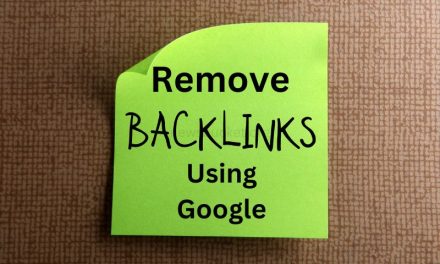Domain authority (DA) or domain rating plays a vital role in increasing a site’s ranking. While most website owners focus on paid campaigns and other digital marketing strategies, DA carries equal importance. A higher DA value triggers search spiders to index your website on top of SERP results and vice-versa. However, the main question is how to increase domain authority. Many website owners struggle with this point.
What is domain rating or authority?
It describes the relevance of a site for a particular niche or industry. DA is the ranking score Moz developed to predict the likelihood of a site ranking in SERP (Search Engine Results Pages) results. The relevance score has a direct impact on a website’s search rankings. The score ranges between 0 and 100.
The higher the score, the higher the page rank will be. With a higher page rank, your site gains better online visibility in search engines. Once your website ranks higher, it’s likely to get more visitors. The increase in the number of visitors paves the path for higher sales or leads. For these reasons, businesses pay more attention to DA.
Factors that determine domain rating
When trying to attain a good DA score, it’s imperative to figure out how to get that score. Moz’s algorithm on DA rating calculations is complex. Yet, certain signals can enhance your score. Popular examples include linking root domains, MozRank, quality content, MozTrust, social signals, and search engine friendliness. These components are just a few of the 40 parameters that Moz uses to determine your score.
How to increase domain authority
Now you have a clear idea of finding your DA score. So, it’s the right time to take suitable steps to gain a desirable rating. Here are popular tips on increasing your DA.
Adhere to the best SEO practices
If you wish to enhance your DA rating, follow SEO (Search Engine Optimization) best practices. SEO principles help to elevate the rankings while strengthening the domain authority score. So, optimize On-page content to improve its performance in search engines. On-site optimization includes elements such as title tags and URLs (Uniform Resource Locator). Usually, any URL automatically adds a portion of the title.
 So, optimize your title properly. Don’t include more than 70 characters in the title. Make sure you include the main keyword within the title. Pay close attention to keywords. Use high traffic but low competition keywords. Additionally, use LSI (Latent Semantic Indexing) keywords. LSI search terms are variations of the main keyword. They are closely tied to your target keyword.
So, optimize your title properly. Don’t include more than 70 characters in the title. Make sure you include the main keyword within the title. Pay close attention to keywords. Use high traffic but low competition keywords. Additionally, use LSI (Latent Semantic Indexing) keywords. LSI search terms are variations of the main keyword. They are closely tied to your target keyword.
For example, if your main search phrase is business accountants, LSI keywords could be affordable accountants, business experts, and so on. Include your main search term or LSI keyword within the title and headings (H1 and H2). Also, use proper Meta descriptions and image alt tags. Each of these components plays a key role in search rankings and DA rating.
Make linkable content
Content rules the online world. This point holds for domain authority too. So, you may want to write content that readers wish to share. Creating linkable content takes time, but your efforts will be rewarding.
Firstly, choose suitable keywords. Next, focus on the quality of content. Try to involve readers in your post. Create content that answers their questions, or entertains them. Add sharing buttons toward the end of the post to make sharing easy.
Make sure you follow a pattern of writing quality content. Your posting schedule will inform the audiences when they might expect your next post. Write regularly. Create a couple of fresh, thought-provoking posts each week. Once your posts get shared, it’ll hopefully trigger Moz to recalculate your domain rating.
Make your site user friendly
Many sites are well-optimized for search engines. Yet, they don’t gain better conversions. Sooner or later, their page rank falls substantially. So, what could be the key reason for this problem? These websites receive a higher bounce rate. In other words, they perform poorly when it comes to visitors. A higher bounce rate means visitors move away quickly after checking out the site.
If this is your case, make your website user-friendly. Organize your content to make it look appealing. Have white spaces within the content and ensure easy navigation with relevant page links for effortless browsing. Include a warm and welcome feeling through a cozy design. Over time, your bounce rate will decrease, which will increase domain authority for your website.
Get links from authoritative sites
Link juice from authority sites can elevate your DA rating and SERP rankings quickly. Most website owners go for quantity when building links. However, links gained from spam sites negatively impact your rankings and Moz score. Despite your good effort, unfortunately, your site gets to the bottom level in SERP results.
That’s highly undesirable for any entrepreneur. So, try to get links from authoritative blogs and websites. Check the domain authority of the sites you wish to get links from. Many tools come in handy here. Your little bit of labor will pay off greatly in terms of better DA and higher rankings.
Wikipedia and Yelp are popular examples of authority sites. Post appealing content on authority sites with a link back to your website. Additionally, get back-links and signals from social media sites too. Over time, you could see a noticeable increase in your domain rating.
Optimize your site for mobile devices
Today, more than 60 percent of users surf the web through mobile devices. The numbers are all set to increase in the coming years. Optimization of a website for mobile devices differs a bit.
Page loading time, content organization, navigation buttons, and graphics mainly determine the SEO for mobile devices. Find out where your website lags. Accordingly, take appropriate steps to fix the issue. Once your site gets mobile-friendly, your domain authority should improve.
You can use tools such as Google PageSpeed Insights and GTMetrix to check your page’s speeds and the factors affecting the performance.
The Bottom line
Domain rating can pave the path for success in the online world. So, take concerted efforts to increase domain authority for your website. However, don’t get obsessed with the DA rating alone. Instead, concentrate on other aspects of SEO too. Also, keep updated with the changing search algorithms and act accordingly. Over time, you’ll reap the results of your hard work.
Website sources:
https://www.webfx.com/blog/internet/what-is-good-domain-authority/
https://www.reliablesoft.net/increase-domain-authority/
https://www.singlegrain.com/seo/starting-from-the-bottom-how-to-build-up-your-domain-authority-from-scratch/
© 2021 by NewsBucket.org, an LiVenture.
All rights reserved. No part of this document may be reproduced or transmitted in any form or by any means,
electronic, mechanical, photocopying, recording, or otherwise, without prior written permission of LiVentures.



